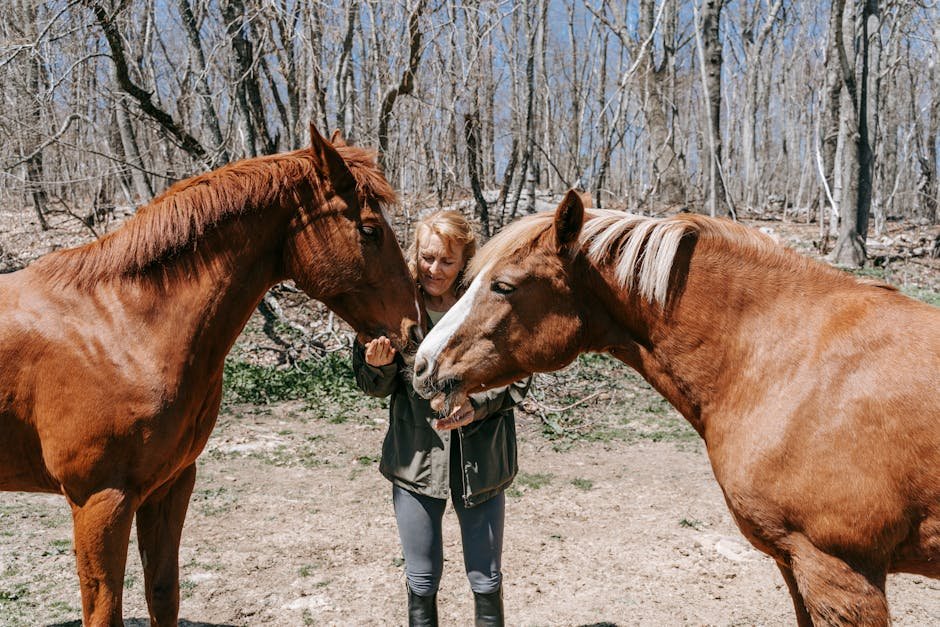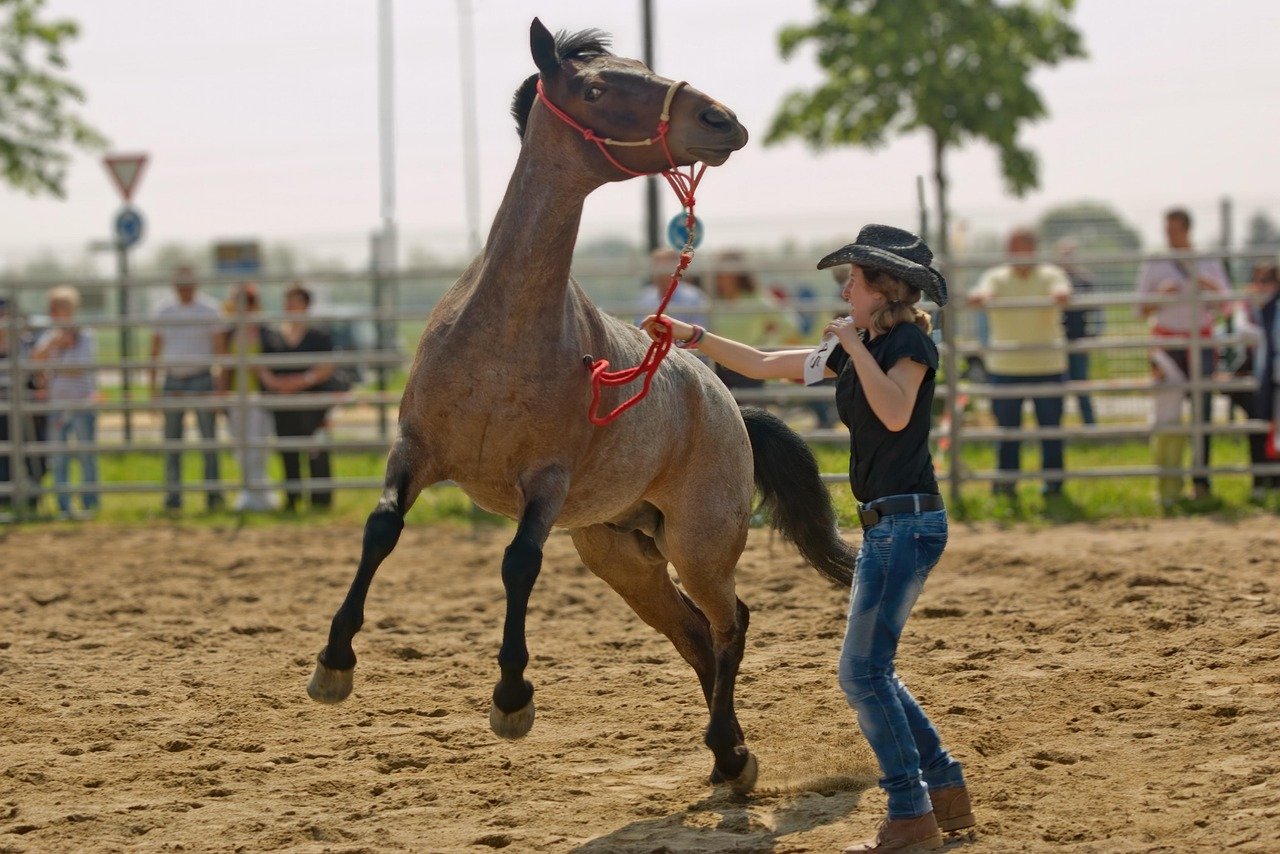Understanding and managing horse behavior can sometimes feel like trying to solve a puzzle without all the pieces. Horses, with their majestic presence and gentle nature, have been companions to humans for centuries. Yet, their behavior can often be misunderstood, leading to challenges in handling and training them. This article will guide you through ten effective management tips that can help in improving the behavior of your equine friend. These strategies are rooted in patience, empathy, and understanding, ensuring a harmonious relationship between you and your horse.
Recognize the Horse’s Natural Instincts
Horses are prey animals, which means their instincts are geared towards survival. Understanding this basic fact can be a game-changer in how you approach managing their behavior. When a horse seems skittish or anxious, remember that it’s responding to perceived threats. These instincts can sometimes be mistaken for stubbornness or disobedience. By acknowledging their natural tendencies, you can approach training and interaction from a place of empathy. This doesn’t mean letting them run wild, but rather using their instincts to guide your methods. For example, using gradual desensitization techniques can help a horse overcome fears. Always remember, patience is key when dealing with instinct-driven behaviors.
Establish a Consistent Routine

Horses thrive on routine, much like humans do. A predictable schedule provides them with a sense of security. Feeding, grooming, and exercising your horse at the same times each day can significantly improve their behavior. Consistency in their daily life helps reduce anxiety and stress, which are common causes of behavioral issues. If a routine must change, try to adjust it gradually to allow the horse time to adapt. Just like how we might feel out of sorts if our morning coffee routine is disrupted, horses too can become unsettled by unexpected changes. Maintaining a routine doesn’t just make life easier for the horse, but also for the handler.
Ensure Adequate Exercise

A horse with pent-up energy is more likely to exhibit undesirable behaviors. Regular exercise is not just about physical health, but also mental well-being. Horses need an outlet for their energy, and without it, they may become restless or develop habits like cribbing or weaving. Whether it’s through riding, lunging, or simply allowing them to run in a pasture, ensuring they have sufficient physical activity is crucial. Just as a dog benefits from a daily walk, a horse too requires its own form of exercise. A well-exercised horse is a happier and more manageable horse.
Provide Proper Nutrition

Nutrition plays a pivotal role in a horse’s behavior. An imbalanced diet can lead to hyperactivity or lethargy, affecting their overall demeanor. It’s essential to provide a diet that meets their nutritional needs based on age, breed, and activity level. Overfeeding, particularly of grains, can lead to behavioral issues, much like how too much sugar can make a child hyperactive. Consulting with a veterinarian or an equine nutritionist can help in crafting the perfect diet plan for your horse. Proper nutrition ensures that your horse is not only healthy but also in a balanced state of mind.
Build Trust Through Positive Reinforcement
Positive reinforcement is a powerful tool in managing horse behavior. Rewarding good behavior with treats, praise, or affection encourages the horse to repeat those actions. Unlike punishment, which can create fear and mistrust, positive reinforcement builds a bond of trust and respect. Consider how you feel more motivated when praised for your efforts rather than scolded for mistakes. Horses, too, respond better to encouragement. Simple actions like a gentle pat or a soothing voice can go a long way in reinforcing desired behaviors. Building trust through positivity fosters a cooperative and willing partner in your horse.
Use Groundwork to Establish Leadership

Groundwork exercises are fundamental in establishing your role as a leader. Before mounting a horse, it’s crucial to ensure they respect and trust you on the ground. Techniques like leading, backing up, and yielding to pressure teach the horse to follow cues and respect boundaries. Think of groundwork as laying the foundation for a building; without it, the structure is unstable. A horse that respects you on the ground is more likely to be obedient when ridden. Groundwork not only establishes leadership but also strengthens the bond between you and your horse.
Address Behavioral Issues Promptly

Ignoring or delaying the correction of behavioral issues can lead to bigger problems down the line. If a horse develops a habit like biting or kicking, it’s vital to address it immediately. Much like a tree sapling is easier to bend than a full-grown tree, early intervention is key. Consistent and calm corrections help the horse understand boundaries and expectations. However, it’s essential to identify the root cause of the behavior before addressing it. Sometimes, what appears to be defiance might be a sign of discomfort or fear. Addressing issues promptly ensures a harmonious relationship between horse and handler.
Provide Social Interaction

Horses are inherently social creatures, and isolation can lead to boredom and frustration. Providing opportunities for social interaction with other horses can significantly improve their behavior. Whether it’s through shared pasture time or organized play sessions, social interaction satisfies their need for companionship. Imagine being stuck alone in a room for days; similarly, horses need engagement with their peers. Socialization also helps in teaching young horses appropriate behaviors through observation and interaction. A socially fulfilled horse is often a well-behaved horse.
Ensure a Comfortable Living Environment

The environment in which a horse lives can greatly impact its behavior. A clean, safe, and comfortable living space is essential for their well-being. Stables should be free from hazards, and pastures should provide ample space for roaming and grazing. Much like how we feel more at ease in a tidy and comfortable home, horses too benefit from a pleasant environment. Temperature, ventilation, and bedding are factors to consider for optimal comfort. A horse that feels safe and comfortable is more likely to exhibit positive behaviors.
Seek Professional Help When Needed

Sometimes, despite our best efforts, professional help is necessary. Equine behaviorists and trainers have the expertise to address complex behavioral issues. Seeking help is not a sign of failure but rather a step towards a better relationship with your horse. Just as we might consult a therapist for personal challenges, horses too can benefit from expert guidance. Trainers can offer insights and techniques that may not be apparent to the average handler. When in doubt, reaching out for professional assistance ensures that both you and your horse are on the right path.
Incorporating these management tips into your routine can pave the way for a positive and rewarding relationship with your horse. Understanding their needs, both physical and emotional, is the foundation of effective behavior management. Whether you’re a seasoned equestrian or a novice horse lover, these strategies can help in fostering a harmonious bond with your equine companion.